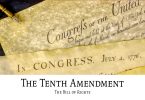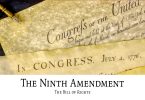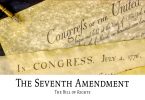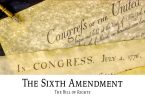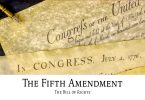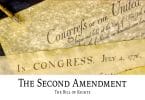Most of us have heard about our Constitutional right to freedom from unjust search and seizure of our private belongings by law enforcement personnel. But, did you know this right comes from the fourth amendment in the Bill of Rights? The Founding Fathers knew the British had abused the people of the colonies with unreasonable, unfounded, and unjust searches and seizures of personal property for decades, and especially during the times of revolutionary sentiment, and during the Revolutionary War in particular.
The Founding Fathers believed that the people had a basic, fundamental right to be secure in their homes without being concerned about a government entity entering their home and rifling through their belongings without just cause. It was all part of the “life, liberty, and the pursuit of happiness” thing that Thomas Jefferson had written into the Declaration of Independence. So, what does the fourth amendment actually say?
The Fourth Amendment
The right of the people to be secure in their persons, houses, papers, and effects, against unreasonable searches and seizures, shall not be violated, and no Warrants shall issue, but upon probable cause, supported by Oath or affirmation, and particularly describing the place to be searched, and the persons or things to be seized.
What Does This Mean?
Obviously, the Founding Fathers were not entirely against searching and seizing the property of private citizens. What they were against was doing this without just cause. The British had been quite arbitrary about their searches and seizures of private property. The Founding Fathers wanted to make sure that no citizen who had led a lawful life and committed no wrongdoing would be subjected to this indignity. Only with a good reason could the government enter private property, search it, and take personal belongings.
There had to be a probable cause for such searches and seizures to take place. This meant that the government had to have it on a pretty good authority that something illegal was taking place at a private residence, or that a resident of that home had possession at the home of evidence that would implicate them in the commission of a crime committed elsewhere before they could go in and search and take a person’s property.
The probable cause couldn’t be just on one person’s word or assumption, either. There had to be an oath or affirmation taken by someone, on the record, that there was a genuine probable cause, and the evidence for that probable cause had to be explained. If a warrant for a search was issued based on the probable cause oath or affirmation, that warrant had to describe exactly the place to be searched and the person or things to be seized, if found there. Nothing outside of what was described in the warrant could be touched.
Of course, today, there are often arguments about exactly what constitutes probable cause, and there are lots of complaints from people who have been subjected to searches and seizures at their homes that the law enforcement personnel involved have gone outside the scope of the warrant in their job. These cases end up in court more often than you might think. But, the Founding Fathers definitely had their hearts and consciences in the right place when they wrote the fourth amendment. It was meant to protect us from the government invading our privacy. Mostly, it still does.

